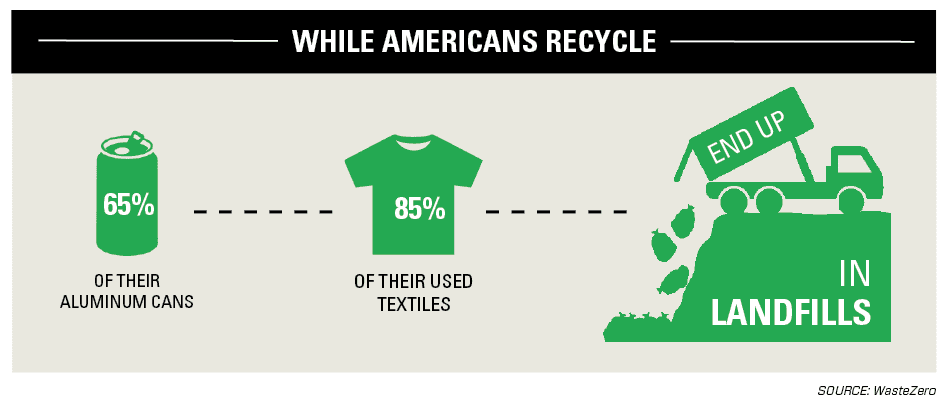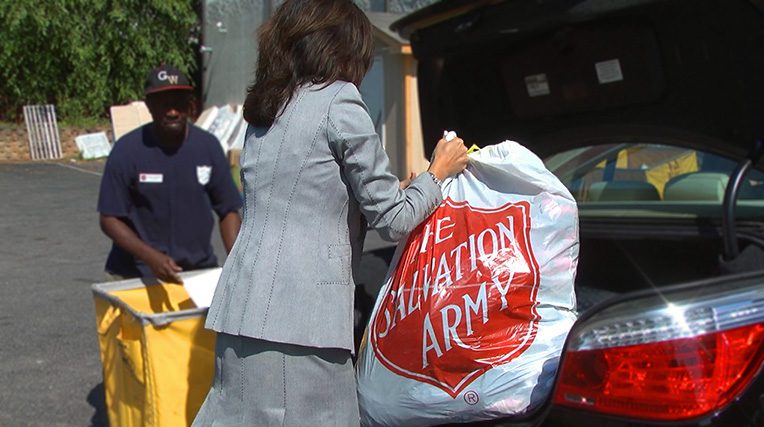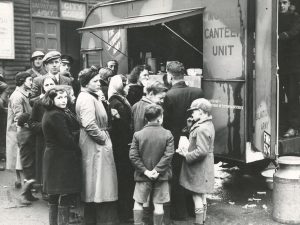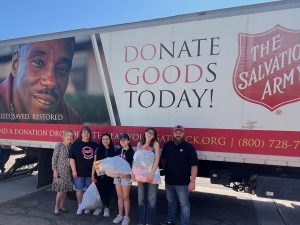Program boosts family store income and builds awareness of other Salvation Army programs.
Responding to increased competition on the national textiles donation landscape, Allen Chan, Salvation Army National Advisory Board member, championed a new pilot program in Wake County, N.C.
“The thrift store business in general—whether we are competing with consignment stores or outlets—has grown tremendously,” Chan said. “Our thinking was, while we have done well, we haven’t necessarily gotten our fair share of the market.”
The program, created in partnership with WasteZero, targets high net worth households with a mailing package containing a Salvation Army branded textile bag and a call to action for recipients to donate their used clothing and soft goods to The Salvation Army.
As a test this summer, 20,500 mailers were sent to Wake County households with a minimum average family income of $81,000. Within a month, Family Store Manager Harold Clyburn observed an increase in donations of around 10 percent. Many donors, he said, come into the store after dropping off their bags to “find something for themselves.” He confirmed that the program has boosted the store’s income.
“We greenlighted this program, whereby we are asking people of means to donate right now—today,” said Major Pete Costas, who led The Salvation Army in Wake County when the program rolled out. He now serves as Area Commander in Greenville, S.C. “We present mailer recipients with a compelling reason to give, selling not only the thrift store, but all the other services that The Salvation Army renders to the community.”

WasteZero, a Raleigh (N.C.)-based certified B Corp, or benefit corporation, with a charter to cut trash in half in America, implemented the direct mail program. While the company’s core business is bag-based municipal pay-as-you-throw programs, it also works with nonprofits such as The Salvation Army, Keep America Beautiful and the Boy Scouts of America to assist cleanup and litter prevention programs and to divert textiles from landfills. The bags manufactured by WasteZero in the U.S. also use 50 percent recycled content, adding another dimension of eco-friendliness.
“When I joined WasteZero, I was shocked to learn that 85 percent of used clothing ends up in the landfill,” said Wanda Urbanska, the company’s director of nonprofit and philanthropic partnerships. “That compares unfavorably to the recycling rate for aluminum cans in America, which is 65 percent. Our partnership with the Army has been a wonderful thing in that we are boosting revenue streams for the life-saving work of the Army while diverting valuable textiles from the landfill.”
This direct mail program is now being implemented around the country, among other locations in Janesville, Wis., in conjunction with a new store opening, and in Houma, La., to drive business and donations to an underperforming store.
In each location, WasteZero works with the local Salvation Army on the creative piece and handles all logistics, including stuffing and mailing the packages.
Wake County Advisory Board member Lisa Rivers, head of the thrift store committee, created the card’s messaging, emphasizing the scope and impact of Salvation Army services with statistics including how many meals are served locally and how many women and children are clothed and sheltered every night. Some card recipients were surprised to learn that the Wake County Salvation Army works to “rescue and assist more than 250 victims of human trafficking” through Project FIGHT.
“The information on the card made me want to give,” one donor said.
In order to get out the information—not only to donors but to other Salvation Army stores around the country—WasteZero filmed an informational video that outlines the program’s steps and effectiveness in Wake County, and developed a template for partnering with businesses for in-house drives.
“I am absolutely sure [the direct mail program] can be replicated,” Chan said. “The Salvation Army is unique in that we have actual operations and have things that we do in every zip code in the nation. As a consequence, there are many high-density urban areas where this pilot, or this program, should be very applicable.”
[button color=”black” size=”normal” alignment=”none” rel=”nofollow” openin=”newwindow” url=”https://www.youtube.com/watch?v=ixGPXi8QL2s”]Watch the video on how WasteZero is helping Salvation Army corps increase donations.[/button]











